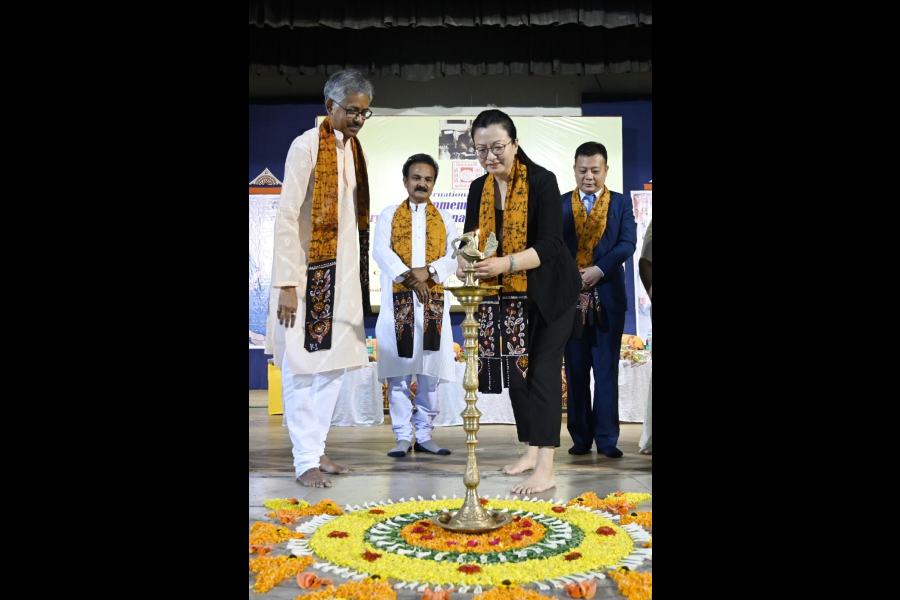Educational and cultural exchange programmes between Visva-Bharati and Chinese universities that stopped since the Covid-19 outbreak in 2020 are likely to resume this year, which marks 100 years of Rabindranath Tagore's first visit to China.
The process to resume such exchange programmes was discussed during a two-day international conference on April 1 and 2 in Santiniketan, jointly organised by the Cheena Bhavana — the centre of Chinese studies in Visva-Bharati — and the Chinese Consulate General in Calcutta to mark Tagore's first visit to China in 1924.
"We expect that the exchange programmes to start again this year. A round of discussions with officials of the Chinese embassy took place on the sidelines of the conference," said Abhijit Banerjee, the head of Cheena Bhavana told The Telegraph.
Tagore visited China twice in 1924 and 1928. On his first visit to the country, the first Asian Nobel laureate spent 49 days, meeting several Chinese scholars such as the minister of justice of the Republic of China and intellectual Liang Quicho (1873-1929) and Chinese poet and writer Xu Zhimo (1897-1931).
An official said Tagore set up the Chinese department in 1937 in Visva-Bharati to promote the Chinese language and culture as a symbol of Sino-Indian friendship after his two visits to the country.
The poet requested Chinese scholar Tan Yun-shan, who was touring India during the late 1930s, to be the founder-director of the department.
In the recent two-day international conference, the Chargé d'Affaires of the Chinese Embassy in India, Ma Jia, and the acting consul general of China in Calcutta, Qin Yong, were among the participants. Experts and scholars in Tagore research from the Jawaharlal Nehru University, the Banaras Hindu University and the Vivekananda International Foundation attended the entire conference and delivered keynote speeches along with Visva-Bharati's acting vice-chancellor Sanjoy Kumar Mallik.
According to Banerjee, top officials from the Chinese embassy have already invited a Visva-Bharati delegation to take part in events in a couple of months to mark Tagore's first visit to China.
"Once our delegation visits China, we will invite the scholars and students from Chinese universities. We hope the exchange programme resumes by October," he added.
A source said that from 2010 to March 2020, when all such exchange programmes stopped because of the pandemic, delegations from around 20 Chinese universities including Peking University, Yunnan University and Yunnan Minzu University, visited Santiniketan as part of the exchange programme.
"Exchange programmes used to play a very significant role for the Indian students studying Chinese here," he added.
The Chargé d'Affaires Ma Jia of the Chinese Embassy in India affirmed that Tagore's visit to China was a milestone that still plays an important role in promoting exchanges and mutual learning between the two major civilizations of China and India.
"China and India should inherit and carry forward Tagore's great spirit, deepen people-to-people and cultural exchanges between China and India, and add more positive factors to China-India relations," she said during the inaugural programme of the two-day meet.










